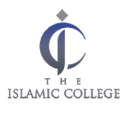ISD226 – Current Issues in Muslim Societies
Course Overview
This module aims to develop an awareness of debates currently running in Muslim societies on key modern issues; and examine the response of key Islamic schools of thought to these issues. The module will equip the student with an academic familiarity of the important issues of his/her society so that they may more effectively engage with the community. It is thus highly recommended for any student wishing to engage in community work, contemporary debates and even journalism.
Module Info
- Syllabus
- Outcomes
- Strategy
- Material
sYLLABUS
- The main issues explored are:
- Islam and democracy
- Fundamentalism
- Islam and human rights
- Integration
- Hijab
- Islam and terrorism
- Suicide bombing
- Islam and issues in medical ethics
- Contraception
- Abortion
- Artificial insemination
- Euthanasia
- Organ transplantation
- Islam and democracy
Learning Outcomes
Knowledge
On completion of this module, the successful student will be able to:
- Evaluate key contemporary debates in a Muslim context. (A1, A5)
- Represent an overview of the broader picture of Islam as understood by different modern Muslim thinkers. (A3)
- Summarize and evaluate key points raised in a debate on current issues in Muslim societies. (A5, B2)
Skills
This module will call for the successful student to:
- Build appropriate methods to identify, gather and organize information on current issues from primary and secondary sources and use them effectively. (B5, C2, C5, D6)
- Verbally argue and challenge modern and traditional understanding of Islamic issues. (B4, C1, C3, C4, D2, D3)
Learning, Teaching and Assessment Strategy
The module will be taught through lectures, discussion, and seminars. Students work will be developed through class work and search of primary and secondary sources. Certain topics will be addressed in round table discussions.
Assessment Scheme
Formative Assessment:
Formative assessment involves an in-depth search and review of publications related to the specific paper will be required. Students will receive formative feedback on their debate performance after completing them which will help them improve for future debates. They may also hand in their debate notes to the lecturer for feedback and guidance, and discuss and clarify and outstanding issues before the debate commences. Additionally, as part of the formative learning process each student will meet at least once with the module leader in order to discuss their critical learning for their assessed essay. The tutorial or meeting will not be assessed but will form part of the formative learning process with constructive feedback given to the student. A draft of the critical review may be submitted for formative assessment before the 10th week.
Summative Assessment:
Assessment for this module is based on a debate and critical review. The debate will last for 30 Minutes. The debate will require students to present researched arguments on differing perspectives concerning current issues in Muslim societies (Outcomes 2, 4, 5). The 1,500 words word critical review will summarize and evaluate the debate reflectively (Outcomes 1, 3).
Assessment Weighting
Debate: 60%
Critical Review: 40%
Learning Material
Core readings
- Mutahhari, M. (2014) The Rights of Women in Islam, CreateSpace Independent Publishing Platform
- Masud K. M. (2009). Islam and Modernity: Key Issues and Debates, Edinburgh University Press
- Nasr, S.H. and Religionsphilosoph, I. (2010) Islam in the modern world: Challenged by the west, threatened by fundamentalism, keeping faith with tradition. New York: HarperOne.


